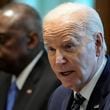Plummeting oil prices are continuing to inflict more damage on stocks markets around the world as shutdowns related to the coronavirus pandemic keep economies stifled.
Wall Street was down sharply again Tuesday, a day after oil’s unprecedented fall below zero as demand for energy collapses amid the ongoing crisis.
S&P 500 closed down 3% Tuesday, its second straight loss.
Markets across Europe and Asia had similar drops.
Oil prices crumbled again as demand for energy withers as planes remain parked, cars garaged and factories shut down. Meanwhile, storage tanks for all the excess crude are getting filled close to their limits.
Treasury yields fell, meaning investors are willing to get paid even less to get the safety of owning U.S. government bonds.
The Dow Jones Industrial Average was down 631.56 or 2.67% to 23,018.88.
The NASDAQ composite index was down 297.50 or 3.48% to 8,263.23.
The S&P 500 was down 86.60 or 3.07% to 2,736.56.
U.S. stocks were down from the opening bell Tuesday, a day after oil prices plummeted below zero as demand for energy collapses amid the coronavirus pandemic.
The extreme volatility in energy markets highlighted investors’ broad concerns about the duration of the coronavirus outbreak and its impact on the economy, weighing on financial markets more broadly, including stocks. All three major indexes were in the red as the selloff in oil markets worsened.
While Wall Street shares have gradually stabilized after wild swings earlier this year, uncertainty over growing numbers of coronavirus cases in Japan and in some Southeast Asian countries has left investors wary about new waves of infections.
The latest on oil
The market for U.S. crude also appeared to be in turmoil again Tuesday, with one contract trading below zero, as investors worried about full storage facilities as the crisis leaves factories, automobiles and airplanes idled.
The U.S. benchmark settled at negative $37.63 per barrel on Monday - an unprecedented event in energy markets that reflects the fact that storage facilities are struggling to cope with the huge and sudden plunge in global demand, which is this month forecast to hit its lowest since the mid-90s. On Tuesday, the cost to have a barrel of U.S. crude delivered in May was at negative $7.40 per barrel.
Trading of contracts for U.S. oil to be delivered in May ends on Tuesday, meaning that the extreme drop does not accurately reflect the long-term view of the value of crude but rather investors' ability to take delivery of it now. The next futures contract, for delivery in June, is considered to now be closer to the “true” price of crude.
But even that contract was falling sharply on Tuesday. It was down $3.85 at just $16.58 per barrel, trading as low as $11.79 a barrel at one point.
‘Eye of the hurricane’
The tumult in the oil market mirrors volatility in many others and reflects uncertainty over where the world economy will head as governments begin to loosen controls imposed to contain the coronavirus.
“We could merely be in the eye of the hurricane as the epicenters of its rage remain centered around demand devastation and crude oil oversupply,” Stephen Innes of AxiCorp. said in a commentary.
“At a minimum, oil prices will be the last asset class to recover from lockdown” and only when travel restrictions are lifted, he said.
Brent crude, the international standard, dropped $4.14 to $21.43. It fell nearly 9% on Monday to $25.57 per barrel.
“The historic drop in WTI prices is an indication of the downward pressure which many other crude oil grades could face, given the oversupply situation,” Sushant Gupta of Wood Mackenzie said in a report.
Markets around the world
The volatility in energy markets unsettled stock markets around the world.
Germany’s DAX stock index dropped 2.4% to 10,420 and the CAC 40 in France shedding 2.2% to 4,428. Britain’s FTSE 100 declined 1.7% to 5,714.
Unconfirmed reports Tuesday that North Korean leader Kim Jong Un was in fragile condition after surgery added to the jitters. But South Korea’s government said Kim appeared to be handling state affairs as usual.
Tokyo’s Nikkei 225 stock index fell 2% Tuesday to 19,280.78 while the Hang Seng index in Hong Kong lost 2.2% to 23,793.55. South Korea’s Kospi slipped 1%, to 1,879.38.
Australia’s S&P/ASX 200 fell 2.5% to 5,221.30 and the Shanghai Composite index gave up 0.9% to 2,827.01.
In currency trading, the dollar edged down to 107.40 Japanese yen from 107.63 on Monday. The euro fell to $1.0831 from $1.0862.
— Compiled by ArLuther Lee for The Atlanta Journal-Consitution.





